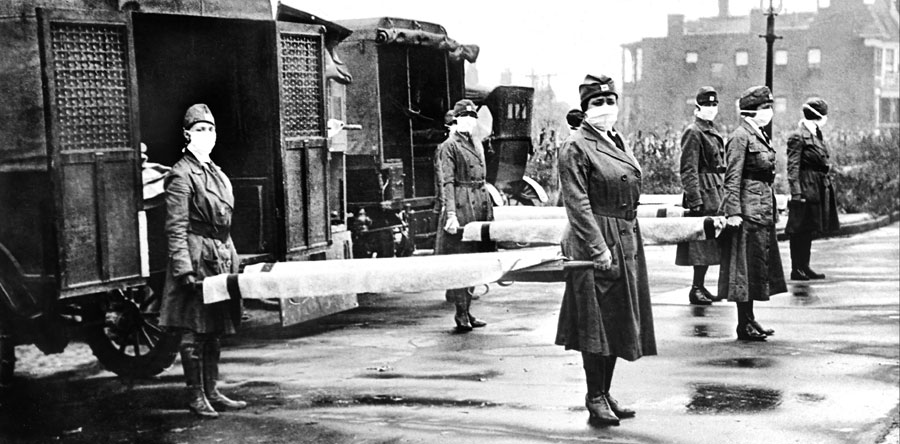Historical Perspective and Lessons Learned
Actionable Historical Lessons

Examining the past can guide us in the present. Some aspects of the human experience remain the same. History can help us answer many relevant questions such as these:
How might we prepare for the spread of pandemic disease?
The 1918-1919 “Spanish influenza” pandemic demonstrates that standard medical systems can quickly become overwhelmed. In 1918, Army hospitals overflowed with patients, and officials scrambled to set up makeshift wards in tents and unused buildings. Now, civil and military officials are again preparing to use tents and other shelters to set up overflow wards.
What is the role of travel in spreading pandemic disease?
“Spanish influenza” started its global journey by following U.S. troops traveling by train and ship. Today we have an average of 4 billion airline passengers annually, and COVID-19 has spread from China to all inhabited continents within weeks, prompting travel restrictions. History warned us that we must pay attention to the movement of people when diseases threaten to spread.
Are quarantines and social distancing measures useful in restricting the spread of disease—even if not everyone complies with these measures?
In 1918, quarantines in the U.S. varied from one jurisdiction to another, including military posts. Isolation was never total. Some movement of people was necessary to keep society functioning. Isolation did protect many people, however. At Camp Meade, Maryland, six infantry companies quarantined in tents four miles away from the main camp remained free of disease. History tells us that isolation can keep many people healthy even if it not possible to enact complete isolation.
What communication issues might pandemics cause?
In 1918, rumors of German infiltrators spreading flu as “germ warfare” undermined the credibility of the U.S. Army Medical Corps. During the 2014-2016 Ebola epidemic in West Africa, misinformation spread by Twitter prompted hostility towards doctors and unsafe behaviors. Now, false information about COVID-19 is being spread by social media. The U.S Centers for Disease Control and Prevention (CDC) has had to create a webpage urging Americans not to stigmatize people of Asian origin for the spread of COVID-19.
We can ask many other questions of history, such as questions relating to human behavior or the economic effects of a pandemic. How does a pandemic-stricken population maintain morale? How might medical research during a pandemic help mitigate its effects? Each pandemic offers lessons. The current COVID-19 pandemic will be studied years from now, and we who are living through it are in a position to document and preserve its lessons for the future.
